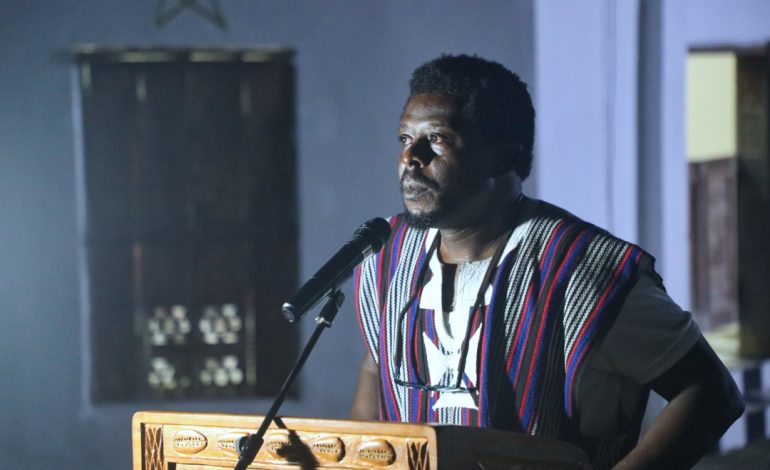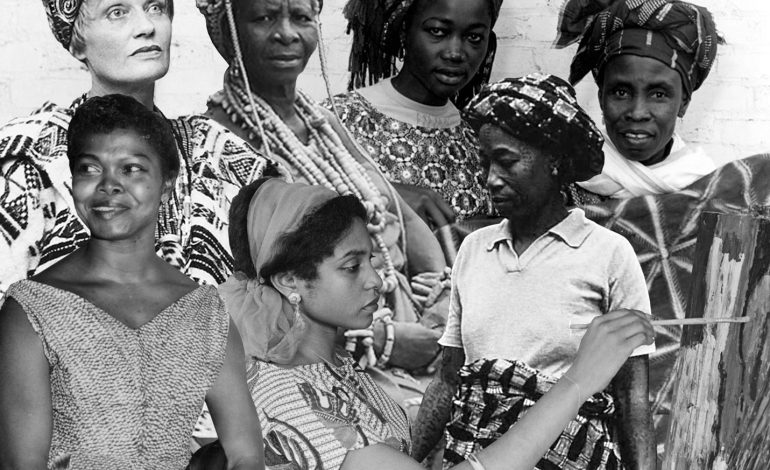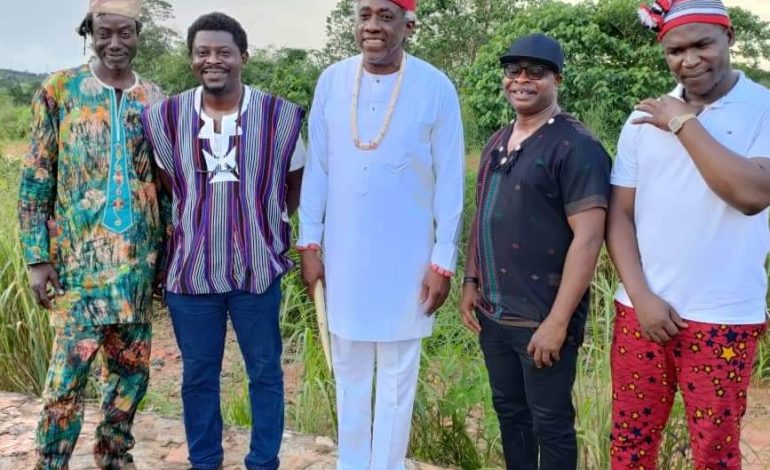Immersed in devotion to Christopher Okigbo, Africa’s poet-patron saint

By Nwachukwu Egbunike
FROM August 19 to 21, 2021, I was engaged in a sublime pilgrimage to the birthplace of one of Africa’s greatest poets, Christopher Okigbo (1932-1967) in Ojoto, Anambra State, Eastern Nigeria. This journey was an immersion into the soul of Okigbo, the source of his muse and the transcendental realities that forged his poetry. But above all, the Return to Idoto was a supernatural encounter with a hero of extra-ordinary proportion.
It was much more than the goose-bumps recitation of one of Okigbo’s magnus opus – “The Passage” – in unison with other poets before Okigbo’s tomb or actually leaning on the oil bean seed tree or even performing at the banks of the Idoto stream. It was the unfathomable experience of actually being absorbed in public devotion of Okigbo, the poet, prophet and pilgrim. The alusi[i] that transited in haste, but who has now assumed material immortality.

I do not take this privilege for granted. It is one thing to read and study Okigbo’s books. It’s an entirely different experience to live Okigbo – placing one’s foot across the paths that he walked. Sharing an evening under the same moon that illuminated his short but illustrious life in Ojoto, where he lived in his father’s house – which still stands till date.
Self-promotion is a temptation that most poets, like all creatives are easily prone to. As a poet has a high sensitivity of scooping up emotions and expressing them in the most extra-mundane narration, we easily sway towards gnostic arrogance. However, this was one of the things that my pilgrimage to Ojoto, learning from the feet of the Master these past weeks has taught me to avoid. Okigbo transmitted to me that a poet is a servant, better still as slave of his people. Poetry is an agwu– a gift bestowed on the poet – not for himself but for the service of humanity. Okigbo taught me that it is better to build a forest. But for that to happen, each tree has to freely give itself up in search of the common good.
These are the canticles that I learnt at the Masters feet. With heads bent eternally in gratitude to Christopher Okigbo who gave his life – in and out of poetry – that many like myself are now able tell this tale.
* Egbunike, a guest poet at the Return to Idoto3, is the author of recently published collection of poems, Nka!
[i] Alusi: Igbo word for deity.
[ii] Agwu: in Igbo cosmology is a spirit with the responsibility of guiding and controlling the behaviour of one that has a supernatural task and assignment



